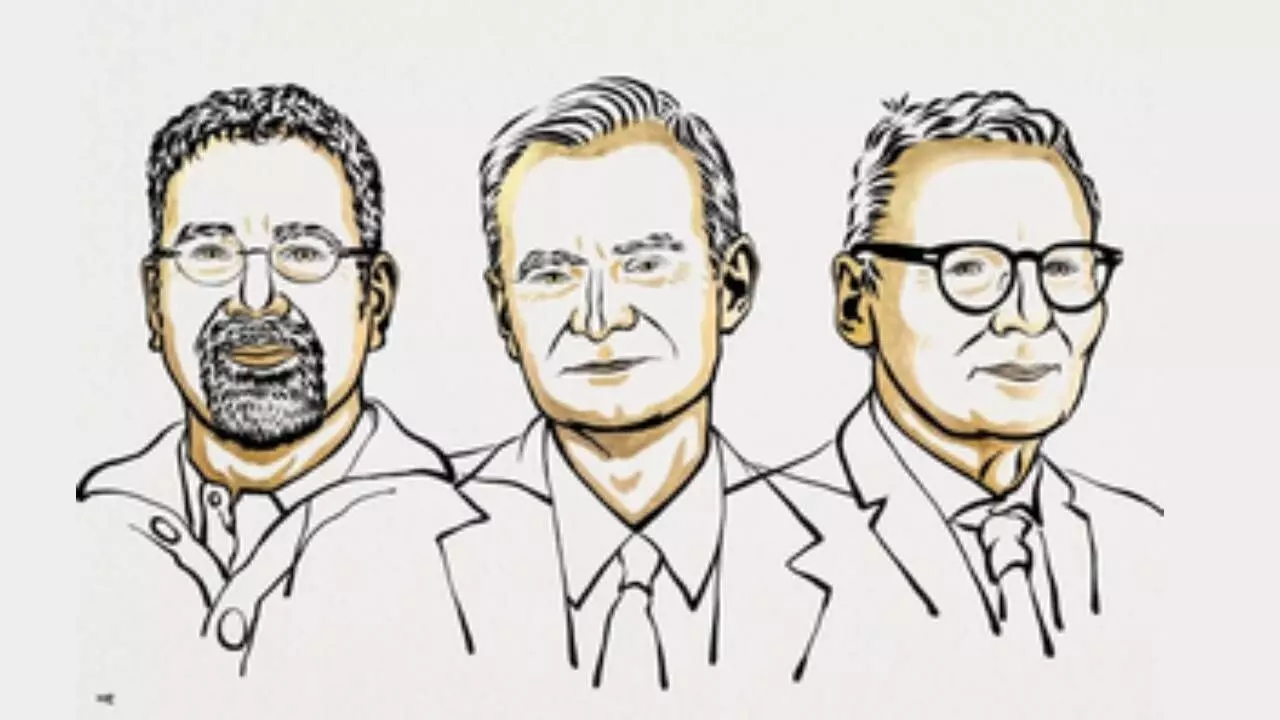3 share Nobel in Economics for explaining why some countries are rich and others poor
The Royal Swedish Academy of Sciences on Monday awarded the Nobel Prize in Economic Sciences to three US economists for providing new insights into why there are such vast differences in prosperity between nations, trying to help solve the puzzle why some countries are rich and others poor
3 share Nobel in Economics for explaining why some countries are rich and others poor

Stockholm, Oct 14: The Royal Swedish Academy of Sciences on Monday awarded the Nobel Prize in Economic Sciences to three US economists for providing new insights into why there are such vast differences in prosperity between nations, trying to help solve the puzzle why some countries are rich and others poor.
Daron Acemoglu and Simon Johnson from Massachusetts Institute of Technology (MIT) and James A. Robinson from the University of Chicago in the US were awarded the coveted honour for studies of how institutions are formed and affect prosperity.
Acemoglu, Johnson and Robinson have demonstrated the importance of societal institutions for a country’s prosperity.
"Societies with a poor rule of law and institutions that exploit the population do not generate growth or change for the better. The laureates’ research helps us understand why," said the Academy.
"Reducing the vast differences in income between countries is one of our time’s greatest challenges. The laureates have demonstrated the importance of societal institutions for achieving this," said Jakob Svensson, Chair of the Committee for the Prize in Economic Sciences.
When Europeans colonised large parts of the globe, the institutions in those societies changed - but not in the same way everywhere. The Nobel laureates have shown that one explanation for differences in countries’ prosperity is the societal institutions that were introduced during colonisation.
In some colonies, the purpose was to exploit the indigenous population and extract natural resources to benefit the colonisers. In other cases, the colonisers built inclusive political and economic systems for the long-term benefit of European settlers.
"This is an important reason for why former colonies that were once rich are now poor, and vice versa," according to a statement by the Academy.
The researchers also said that as long as the political system guarantees the elites will remain in control, no one will trust their promises of future economic reforms. According to the laureates, this is why no improvement occurs.
However, this inability to make credible promises of positive change can also explain why democratisation sometimes occurs.
“When there is a threat of revolution, the people in power face a dilemma. They would prefer to remain in power and try to placate the masses by promising economic reforms, but the population are unlikely to believe that they will not return to the old system as soon as the situation settles down,” explained the Academy. In the end, the only option may be to transfer power and establish democracy.

